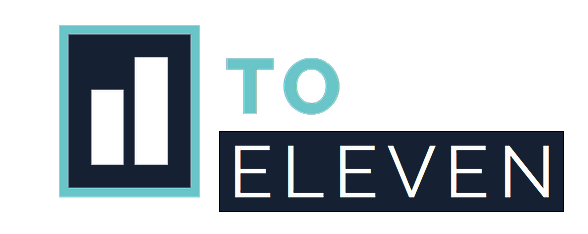I’m a student, how should I study?
How to avoid common studying mistakes
As I wrote about in Learning is Hard, our intuitions and self-assessments are not the most reliable guides to how we should manage our own learning activities. In fact, they commonly cause us to do exactly the wrong thing. Students may think it’s more effective to cram for a test the night before, or to stop studying if they think they’ve "got it.”
The trouble is, being confident you know something and really knowing are not always the same things. Real learning requires active engagement, and deliberate practice. It can’t happen in one session — it requires revisiting, and it takes sustained effort.
Alistair Berg (Getty Images)
As the number of students managing their own learning outside the typical classroom environment increases, so does the importance of helping students become better learners. There has never been a better time to learn how to study in a way that is truly effective.
Most students don’t consistently use effective, research-based studying techniques.
There is a huge gap between research and practice. Why?
Well, has anyone (who actually possesses the relevant knowledge and skills) ever sat you down and talked about the right way to study? Or helped you understand which types of strategies are likely to yield the greatest learning gains? Probably not. (Not fitting into any of the traditional curriculum subjects, that knowledge has unfortunately been left out of the curriculum.) And so left to their own devices, students choose techniques they imagine are effective, or that lead to ‘good performances’ during the study session. Almost invariably, these techniques are those that feel easier and/or lull students into a false sense of security that they know more than they do. Unfortunately, almost every technique that makes learning feel easier won’t actually lead to long-term learning.
Let’s look at some errors students tend to making their own studying decisions.
Choosing the wrong things to study. Students often decide to study information they know vs. partly-understood, or unknown. Again, it’s easier. Or makes you feel good because you have some level of success. Just as is the case in the gym, tackling challenges which are just beyond our competence is a much more effective strategy.
Klaus Vedfelt (Getty Images)
Here’s an example: Two students practice piano for the same amount of time.
Student A focuses her practice on the difficult parts of a piece on which she tends to make the most mistakes.
Student B plays the piece in its entirety over and over again. Including all the parts she knows and is already good at.
Of these two students, student A will experience more and faster improvement. Student B is spending too much time on the parts of the piece she has already mastered. Sure, she’ll probably feel good about herself (maybe more so than Student A), but unless that is her primary goal, it’s an inefficient way to learn; she will make less progress on the more difficult parts.
This ultimately can be demotivating to students as they don’t see as much improvement or change even though they feel they have put in a great deal of practice time.
And remember, we’re not really talking about piano playing here. This is about learning anything!
Choosing ineffective study methods. Most students study in a very passive way. They highlight their books or notes. They read over class notes again and again. Yet a huge body of research is crystal clear in revealing that passive studying techniques such as these are inferior. Much more effective is actually practicing what you will ultimately need to do to show you have learned something, and that is to retrieve the information from your memory.
diane555 (Getty Images)
If you are learning the capitals of all of the states in the U.S — what’s the best strategy? Stare at a map for a while and hope that somehow your brain will absorb the information? Sadly, that’s not how our brains work.
A better strategy would be to get a blank map, or list of the states (depending on what you need to know), and try and fill in as much as possible. Without looking anything up.
And your subsequent studying and practicing can be more focused and targeted.
By doing this type of exercise you are actively retrieving information from your long term memory. In doing so you change how you can access the information later. As cognitive psychologist Robert Bjork said,
“When we use our memories by retrieving things, we change our access to that information. What we recall becomes more recallable in the future. In a sense you are practicing what you are going to need to do later.”
But, this only works if you actually have to do something — not just click a button or flip to the back of the book or a certain page to see an answer. If to answer a practice question you must draw on cues, and your past knowledge to generate an answer, you are practicing retrieval. By simply rereading information, students do not practice memory retrieval, but may instead believe that this repetition will ingrain the information in their memories. The material feels increasingly familiar, but they are making a costly error in mistaking recognition for mastery.
Not spreading out study sessions. Although it sounds counterintuitive — and even counter-productive — we must forget a little in between study sessions to benefit from retrieval practice. When retrieval of information is made so easy as to ensure success, because it comes too soon after the learning event, there are strong memory cues, or some other factor, the benefits of such retrieval as a learning event are reduced significantly. Things feel too easy and we can trick ourselves into thinking we’ve learned something. When we allow ourselves some time to forget, accessibility to information we are trying to retrieve is reduced (but not impossible) and retrieving things from our memory becomes a little more difficult. This is beneficial for learning but will feel a little harder when we do it.
SDI Productions (Getty Images)
Stopping studying too soon. Students may stop studying if they feel they know something. Feeling like you know something in the short-term, unfortunately, does not necessarily translate to long-term learning.
Consider the simple example of flash cards. Not only is self-testing and retrieval shown to be beneficial for learning, so is the practice of retrieval even when you have already demonstrated you know something. So when using flash cards, you shouldn’t toss out a flash card just because you got it “right”. Just put it back a little further in the stack. Similarly, with the state capitals exercise, every now and again, practice the capitals you already know. For effective long-term learning you need to keep coming back and retrieving information, even if you think you know it.
Learning is difficult and takes effort. And how you study and practice matters. But let’s face it, most of us are just ‘winging it’ when it comes to figuring out how and what to study. It’s not likely that we’ve received much (if any) explicit instruction on which study techniques are effective and why. Our educational system is squarely focused on teaching content above strategies which help students effectively guide and manage their own learning.
If we can help students understand how and why to use these strategies and purposefully build them into educational experiences, we can begin to narrow the gap between what researchers know about effective learning techniques and the implementation of this knowledge in the real world.





